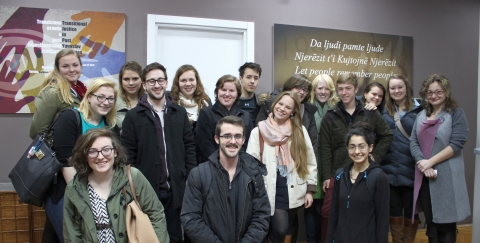Zone of (non)responsibility
With the goal to allow the public to learn about the facts and evidence concerning the crimes committed during the Kosovo war, as well as the wars in the former Yugoslavia, the HLC presents the Zone of (non)responsibility – an interactive web presentation of the crimes committed in the areas of responsibility of Serbian armed forces in Croatia, Bosnia and Kosovo, for which no one has been held responsible. In addition to the descriptions of the crimes, which are based on witness statements, the website presents excerpts of authentic military documents related to the crimes, as well as the police and military hierarchy of units in whose areas of responsibility these crimes were committed.
















